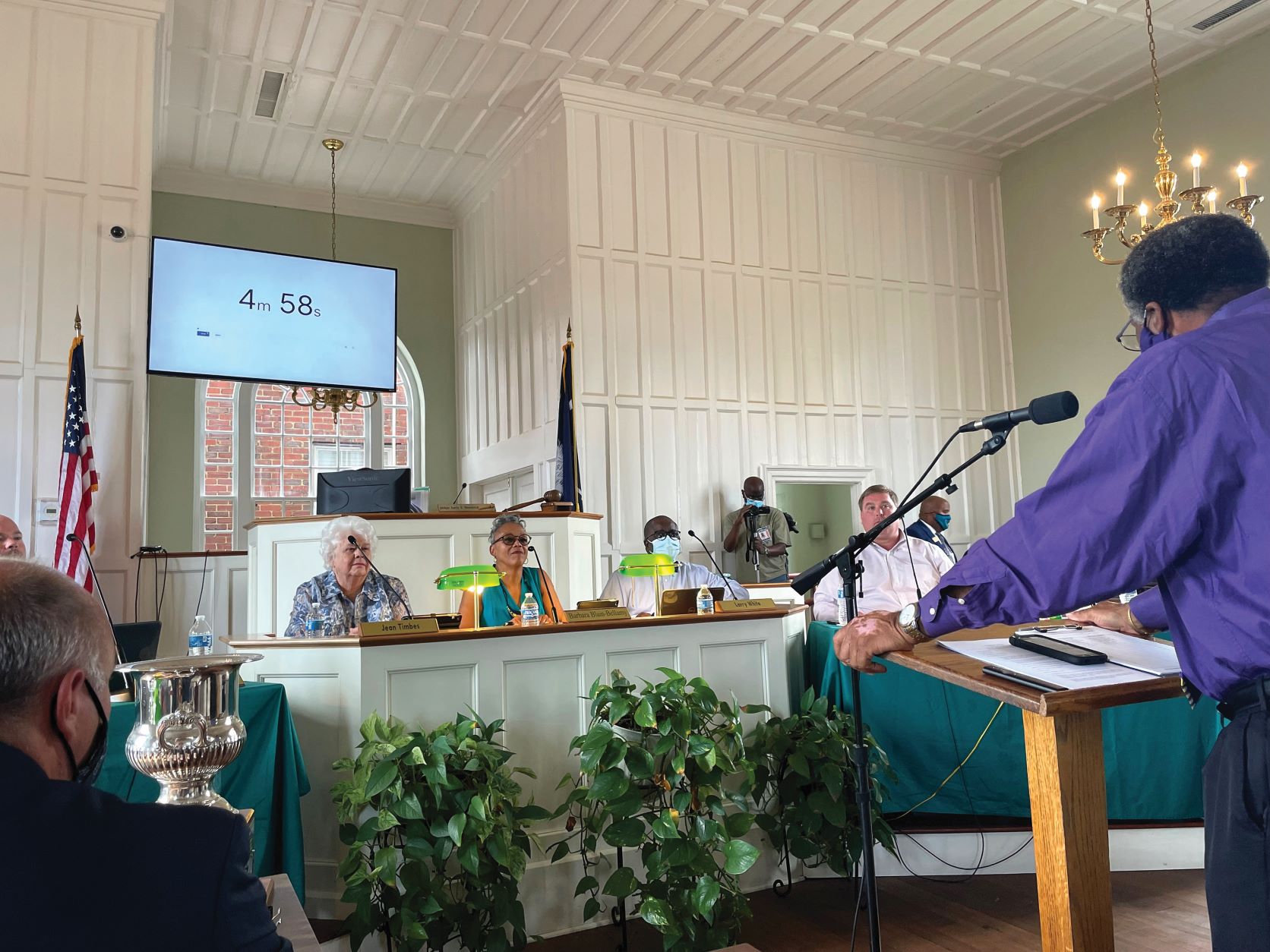Public comment sessions during city council meetings can be a useful way for residents to engage with their local government and elected leaders. But public comment can also easily become a source of conflict.
Those who participate in public comment sessions can run on too long, behave abusively or disrupt the business meetings of the council. Sometimes, councilmembers might respond angrily, or handle public comments in an inconsistent way, further eroding the civility of local government work.

Conway’s city council meetings use a countdown clock to help those speaking
during the public comment period know how much time they have remaining.
Those who establish public comment sessions need to plan and conduct them carefully. Established rules of procedure should limit the time allowed, the conduct or the number of speakers. Some municipalities require speakers to sign up by a deadline set before the meeting.
Here are some things to remember about public comment periods:
There is no requirement to have public comment sessions.
Public comment — a time set aside to hear from the public on any number of issues — is not the same thing as the public hearings required by state law. SC Code Section 6-1-80, for example, requires a public hearing before the council adopts an annual budget, while SC Code Section 6-1-330 requires a public hearing before the adoption of a new service or user fee. But public comment periods beyond those required in state law are not necessary.
A council meeting is the business meeting of the council. Public comment periods should not interfere with that function. State law gives councils the authority to set their own rules of procedure, as long as the rules do not conflict with state law.
Manage the public comment sessions carefully, lay out the expectations for a commenter’s conduct and how the session will proceed at the beginning.
Rules about public comments can determine
- when in the meeting the public may speak — often at the beginning or end of the meeting;
- whether speakers may comment upon only matters on the agenda or any topic;
- whether speakers must sign up in advance of the meeting;
- how long a person may speak; and
- whether there is any discretion for council to extend the time allowed under specific circumstances. Council could extend speaking time when the person is speaking on behalf of a larger group.
The council can also communicate to participants that the rules exist to make sure that councilmembers have adequate time to discuss critical issues, and to make sure that meeting order is preserved. They can express this message with a written agenda, and in a statement made at the beginning of the comment period. It can be useful to note that the comment period is the only portion of the meeting when the council will receive comments from attendees during the meeting.
Those councils that set time limits will often display a timer so that the individual speakers know when they must conclude their remarks. On occasions when speakers continue after they have exceeded their time, the chair can ask them to end their statement.
Be prepared for the possibility of public comments at a meeting sending it into disorder.
Sometimes, rules and preparations are not enough to maintain order in a charged situation — for example, a large number of people attending a meeting to express anger over a specific issue. Some municipalities have adopted rules or ordinances authorizing the presiding officer to stop public comments that either the chair or a majority of council determine to be uncivil, contentious or disruptive.
In a difficult situation, managing the meeting can mean giving warnings that if speakers do not follow the rules, the council will end public comment, and then follow through if necessary.
Learn more about conducting meetings in the How to Conduct Effective Meetings handbook.
